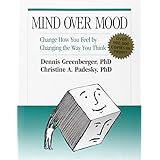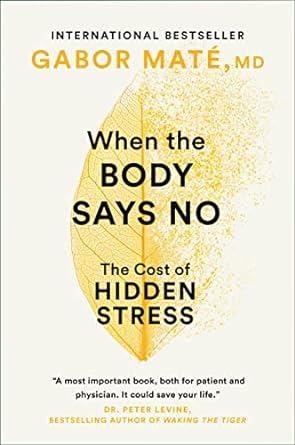ANXIETY is useful in moderation. Moderate stress spurs us on, keeps us alert, encourages us to organize. But excessive anxiety can take over our thinking.
organize. But excessive anxiety can take over our thinking.
Anxiety can dominate our mood, prevent us from focusing on other things or enjoying life. It can convince us that life is dangerous, that one slip will lead to disaster. It can spiral us into panic attacks. It can lead to compulsive behavior and to mental obsessions. Our fight or flight instincts may push us to lash out in destructive anger, or to freeze and withdraw.
Excess anxiety may be a temporary response to an overwhelming situation which passes. It also may become a painful mental habit.
Excessive anxiety can stem from our own overly high expectations. Sometimes we will fail to meet our own expectations. That is inevitable. We can deal with it positively by evaluating the causes and trying again with better tools. Or we can deal with it negatively, fall into self blame and depression.
What counselling is best for anxiety? There are many ways to address habitual anxiety, to manage your stress, just as there are many different ways people perceive their world. Each person has a history, habits, and viewpoints. Each person has certain prejudices and automatic reactions. To gain a more balanced view we start by looking at you and your assumptions. Then we need time, patience, self-awareness and repeated corrective self-talk to gradually change your perspective.
The best known counselling for anxiety reduction is Cognitive Behavioral Therapy (CBT). Mind, body and emotions are all connected. Change one, and you effect the others. CBT has various offshoots, variations and augmentations which can make it more effective for certain people.
Mindfulness is a useful addition.
Medication is a possibility. You will need a physician to prescribe it.
Some types of chronic anxiety require more specialized approaches. Post Traumatic Stress Disorder is one. PTSD results from emotionally painful shock. Afterwards the victim lives in fear, expects danger to lurk around every corner. Flashbacks and dreams can bring the danger back as large as life. PTSD victims avoid talking about their experience because the memories bring back the pain. Yet talking with a safe person can gradually defang those memories. It helps to have support to confront your pain and end it’s power.
ANXIETY RESOURCES:
- Breathe2Relax Apps on Google Play and Apple Store
- Don’t Panic, by Reid Wilson, Ph.D.
- Feeling Good, by David D. Burns, M.D.
 Full Catastrophe Living, by Jon Kabat-Zinn
Full Catastrophe Living, by Jon Kabat-Zinn- From Panic to Power, by Lucinda Bassett
- Mind Over Mood, a workbook, by Christine Padesky & Dennis Greenberger
- Stop Overreacting, by Judith P. Siegel

- Trauma and Recovery, by Judith Herman, MD
- When the Body Says No, by Gabor Mate, MD
- The Power of Vulnerability, Brune’ Brown, youtube.com
- Cognitive Behavioral Therapy, anxietycanada.com/resources/mindshift-cbt/

- Canadian Mental Health Association (CMHA) Suicide Help, crisisservicescanada.ca/
- Niagara Health Services, Outpatient Mental Health Programs, group therapy
- Niagara Regional Public Health Mental Health groups, mentalhealth/support-groups

- Wilson, Reid, anxieties.com/ Self Help
